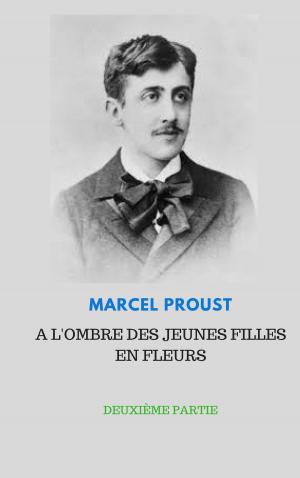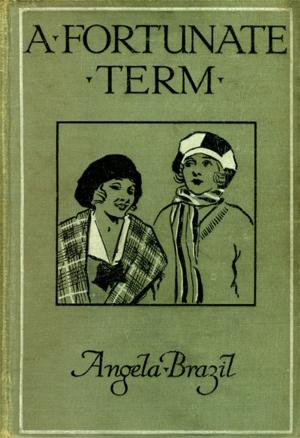| Author: | Homer Greene | ISBN: | 1230002419862 |
| Publisher: | Jwarlal | Publication: | July 10, 2018 |
| Imprint: | Language: | English |
| Author: | Homer Greene |
| ISBN: | 1230002419862 |
| Publisher: | Jwarlal |
| Publication: | July 10, 2018 |
| Imprint: | |
| Language: | English |
Abner Pickett stood in the dusty roadway, rake in hand, watching a load of late August clover, that day harvested, move slowly toward the barn. It was a rich, fragrant, well-proportioned load, covering the hay-rigging wholly from sight, hiding the horses that drew it, swallowing in its luxurious depths the man who drove the team. It was Abner Pickett’s hay, and his team, and his barn; so indeed were his all the fertile acres that surrounded him. But for all this Abner Pickett was not happy.
The yellow glow of the late afternoon sun rested on his bronzed face, but it left there no look of joy, nor even of content. He was a picturesque figure as he stood facing the luminous west. His long white hair, combed straight back from his forehead, curled gracefully on his broad shoulders. His complexion was as clear,[2] his cheeks as pink-tinted, his blue eyes as bright and piercing, as though he had been seventeen instead of sixty-five. His woollen shirt, open winter and summer at the throat, disclosed a muscular neck like a bronze column rising from his chest, and revealed nowhere the wrinkles and the hollows which betoken weight of years. His manners and his moods were no less eccentric than his looks. There were few people in that region who had not, at one time or another, felt the shock of his blunt speech or the keen edge of his caustic tongue. Yet here and there some one, usually some poor and friendless one, would be found brave enough to face an incredulous community and testify to Abner Pickett’s kindness of heart. But he had the Pickett pride. His father had it before him,—brought it with him, indeed, when he came from New England into Pennsylvania and purchased from the commonwealth the four hundred acre tract on which he built the Pickett homestead. Abner Pickett inherited the place from his father. Not a square foot of the four hundred acres had ever been sold. It was his pride and his passion to keep it intact. He intended to pass it down that way to his only son Charlie. Not that he had any exalted idea[3] of Charlie’s ability as a farmer. Indeed, it was well known that Charlie did not take kindly to farming. He was much more fond of knocking around the country with the compass and surveyor’s kit that he had managed to get together, running land lines, locating corners, and laying out village plots for the people of that section of the country. And whether or not Abner Pickett was liked by the neighbors, it is very certain that his son Charlie was the most popular young man in that end of Meredith County. No one was surprised when he married the belle of Port Lenox, the nearest up-river town, and brought her to his father’s house. They all said that a young man of his parts could have married any one he chose. But every one was surprised when it became generally known that the young bride had found her way into Abner Pickett’s well-guarded heart. People had been shaking their heads ominously for a month, and predicted all sorts of trouble and unhappiness for Charlie Pickett’s wife in his father’s household. They knew the old man’s eccentricities so well. Small wonder, then, that they were astonished when they awoke to the fact that Abner Pickett had become the devoted slave of his daughter-in-law.[4] Nothing was too good for her. No service on his part was too burdensome or too painstaking if it added in the least to her comfort or pleasure. Brusque and biting to the world about him, he was to her as gentle and as helpful and as courteous as a knight of old. During her long illness after Dannie, his only grandchild, was born, his devotion to her never ceased. And when he saw the roses begin to come back into her cheeks, he could no more restrain his delight than he could refrain from drawing his breath. But one night she grew suddenly ill again. And while Charlie and Aunt Martha did for her all that loving thought could suggest, or tender care accomplish, Abner Pickett flung himself on his brown mare and dashed madly off through the darkness to Port Lenox, ten miles away, to fetch the doctor. He had the doctor there by daylight; but no physician, nor any drug, nor the most loving care, could hold the struggling spirit in the frail body, and two days later Charlie’s wife was dead.
Abner Pickett stood in the dusty roadway, rake in hand, watching a load of late August clover, that day harvested, move slowly toward the barn. It was a rich, fragrant, well-proportioned load, covering the hay-rigging wholly from sight, hiding the horses that drew it, swallowing in its luxurious depths the man who drove the team. It was Abner Pickett’s hay, and his team, and his barn; so indeed were his all the fertile acres that surrounded him. But for all this Abner Pickett was not happy.
The yellow glow of the late afternoon sun rested on his bronzed face, but it left there no look of joy, nor even of content. He was a picturesque figure as he stood facing the luminous west. His long white hair, combed straight back from his forehead, curled gracefully on his broad shoulders. His complexion was as clear,[2] his cheeks as pink-tinted, his blue eyes as bright and piercing, as though he had been seventeen instead of sixty-five. His woollen shirt, open winter and summer at the throat, disclosed a muscular neck like a bronze column rising from his chest, and revealed nowhere the wrinkles and the hollows which betoken weight of years. His manners and his moods were no less eccentric than his looks. There were few people in that region who had not, at one time or another, felt the shock of his blunt speech or the keen edge of his caustic tongue. Yet here and there some one, usually some poor and friendless one, would be found brave enough to face an incredulous community and testify to Abner Pickett’s kindness of heart. But he had the Pickett pride. His father had it before him,—brought it with him, indeed, when he came from New England into Pennsylvania and purchased from the commonwealth the four hundred acre tract on which he built the Pickett homestead. Abner Pickett inherited the place from his father. Not a square foot of the four hundred acres had ever been sold. It was his pride and his passion to keep it intact. He intended to pass it down that way to his only son Charlie. Not that he had any exalted idea[3] of Charlie’s ability as a farmer. Indeed, it was well known that Charlie did not take kindly to farming. He was much more fond of knocking around the country with the compass and surveyor’s kit that he had managed to get together, running land lines, locating corners, and laying out village plots for the people of that section of the country. And whether or not Abner Pickett was liked by the neighbors, it is very certain that his son Charlie was the most popular young man in that end of Meredith County. No one was surprised when he married the belle of Port Lenox, the nearest up-river town, and brought her to his father’s house. They all said that a young man of his parts could have married any one he chose. But every one was surprised when it became generally known that the young bride had found her way into Abner Pickett’s well-guarded heart. People had been shaking their heads ominously for a month, and predicted all sorts of trouble and unhappiness for Charlie Pickett’s wife in his father’s household. They knew the old man’s eccentricities so well. Small wonder, then, that they were astonished when they awoke to the fact that Abner Pickett had become the devoted slave of his daughter-in-law.[4] Nothing was too good for her. No service on his part was too burdensome or too painstaking if it added in the least to her comfort or pleasure. Brusque and biting to the world about him, he was to her as gentle and as helpful and as courteous as a knight of old. During her long illness after Dannie, his only grandchild, was born, his devotion to her never ceased. And when he saw the roses begin to come back into her cheeks, he could no more restrain his delight than he could refrain from drawing his breath. But one night she grew suddenly ill again. And while Charlie and Aunt Martha did for her all that loving thought could suggest, or tender care accomplish, Abner Pickett flung himself on his brown mare and dashed madly off through the darkness to Port Lenox, ten miles away, to fetch the doctor. He had the doctor there by daylight; but no physician, nor any drug, nor the most loving care, could hold the struggling spirit in the frail body, and two days later Charlie’s wife was dead.















